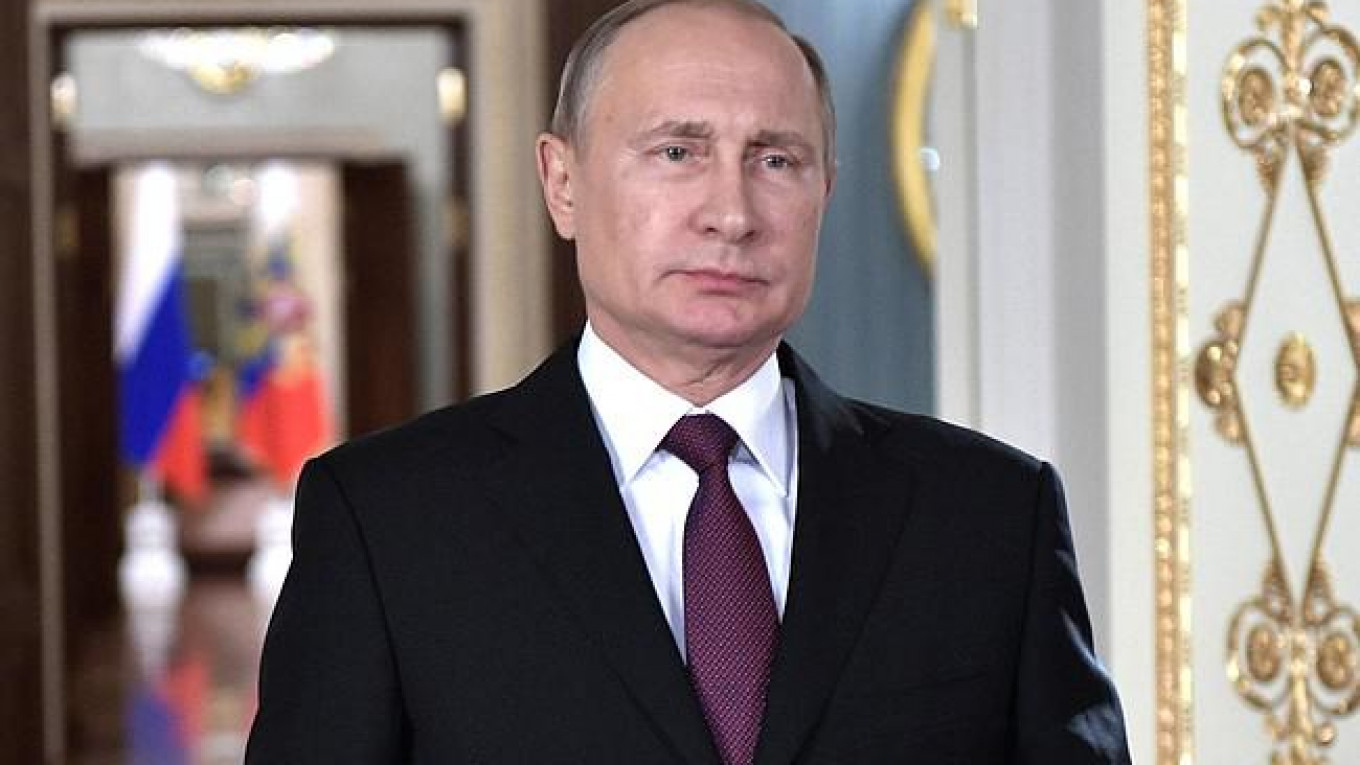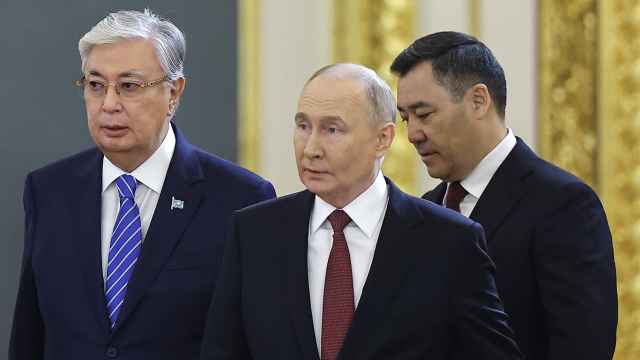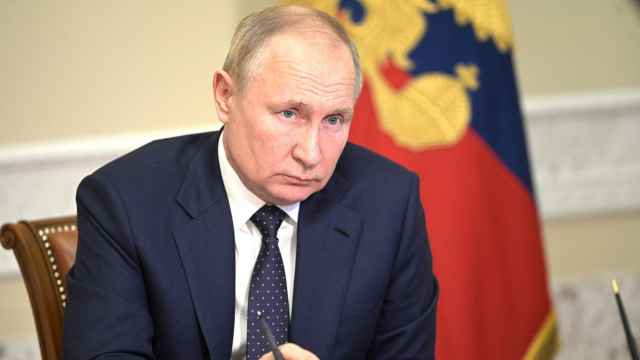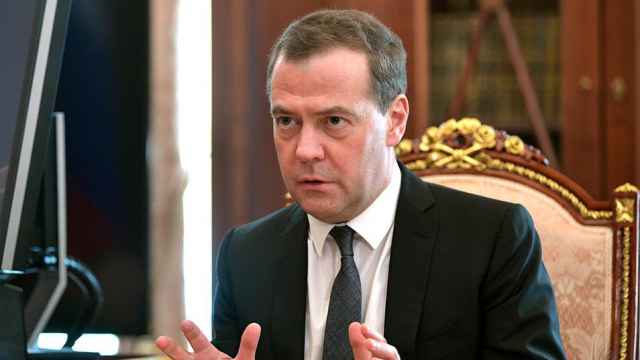(Bloomberg) — President Vladimir Putin is using the threat of additional U.S. sanctions to encourage wealthy Russians to repatriate some of their overseas assets, which exceed $1 trillion by one estimate.
Putin told lawmakers late Monday that a new capital amnesty program was needed “given the foreign restrictions, which instead of lessening are now worsening,” according to a transcript posted on the Kremlin’s website. This “should stimulate the return of capital to Russia,” the president said, without specifying how long the measure will last.
“People should feel comfortable and secure and it shouldn’t involve additional expenses,” Putin said Tuesday at a Cabinet meeting where he ordered officials to finalize the plan.
Russia rolled out a similar amnesty program during the worst of the conflict in Ukraine, which coincided with a plunge in oil prices that triggered the country’s longest recession of the Putin era. That 18-month initiative, the results of which haven’t been disclosed, “didn’t work as well as we’d hoped,” Finance Minister Anton Siluanov said.
Unlike that plan, this one waives Russia’s 13 percent tax on personal income, according to Dmitry Peskov, Putin’s spokesman.
“We and our entrepreneurs have repeatedly faced unjustified and illegal asset freezes under the guise of sanctions,” Peskov said on a conference call Tuesday. “The president’s initiative aims to create comfortable conditions for businesses if they want to use this opportunity to repatriate their capital.”
Oligarch List
Since the U.S. and EU first imposed sanctions on Russia for stoking the rebellion in eastern Ukraine and annexing Crimea, the Kremlin has sought to play down the impact of the penalties, rarely admitting worry. But that’s beginning to change.
Last week, after the U.S. added several prominent Russians to its sanctions list, Putin approved a plan first proposed by business leaders to issue special bonds designed to give the wealthy a way to hold their dollar assets out of the reach of the U.S. Treasury.
And on Monday, Peskov warned that additional sanctions could lead to “unbearable risks and dangers” for relations with the U.S., which he said are already in a “pitiful state.”
The detention last month in France of billionaire Russian Senator Suleiman Kerimov on suspicion of tax evasion is just one example of the “witch hunt” Russians are facing throughout the West, according to Valentina Matviyenko, a longtime Putin ally who heads the upper house of parliament.
A U.S. law that took effect in August calls for the Treasury Department to compile a list of “oligarchs” and their companies as potential targets for additional penalties.
The law also calls for a study of the possible impact of banning U.S. investors from purchasing sovereign Russian bonds, a move that could complicate the government’s borrowing plans.
The government hasn’t given an estimate of the amount of wealth Russians hold abroad, but a study published in August by the Cambridge, Massachusetts-based National Bureau of Economic Research put the figure at 75 percent of national income, or about 60 trillion rubles ($1.04 trillion).
“There is as much financial wealth held by rich Russians abroad — in the United Kingdom, Switzerland, Cyprus, and similar offshore centers — than held by the entire Russian population in Russia itself,” said the authors of the study, including Thomas Piketty, who wrote the 2013 best-seller “Capital in the Twenty-First Century.”
A Message from The Moscow Times:
Dear readers,
We are facing unprecedented challenges. Russia's Prosecutor General's Office has designated The Moscow Times as an "undesirable" organization, criminalizing our work and putting our staff at risk of prosecution. This follows our earlier unjust labeling as a "foreign agent."
These actions are direct attempts to silence independent journalism in Russia. The authorities claim our work "discredits the decisions of the Russian leadership." We see things differently: we strive to provide accurate, unbiased reporting on Russia.
We, the journalists of The Moscow Times, refuse to be silenced. But to continue our work, we need your help.
Your support, no matter how small, makes a world of difference. If you can, please support us monthly starting from just $2. It's quick to set up, and every contribution makes a significant impact.
By supporting The Moscow Times, you're defending open, independent journalism in the face of repression. Thank you for standing with us.
Remind me later.






